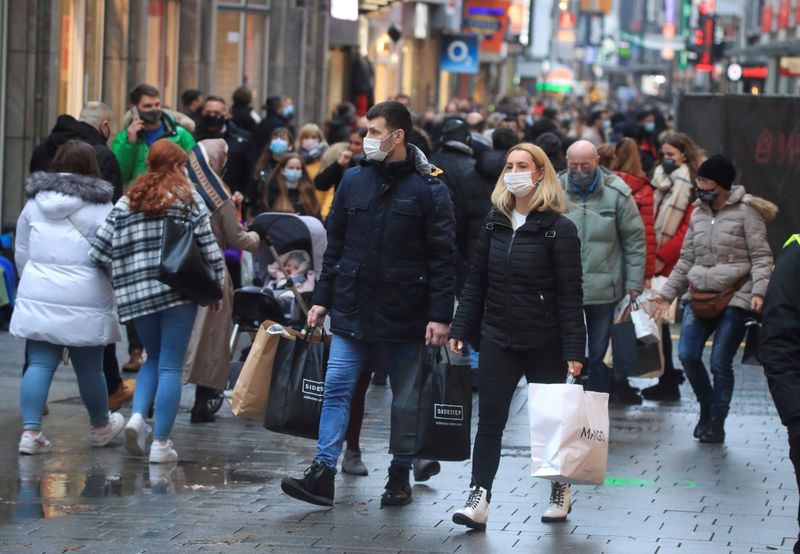BERLIN (Reuters) - The mood among German consumers darkened heading into September as accelerating inflation and rising COVID-19 cases made them more hesitant to buy, a survey showed on Thursday.
The GfK institute said its consumer sentiment index, based on a survey of around 2,000 Germans, dropped to -1.2 points for September, from a revised -0.4 points a month earlier. The reading compared with a Reuters forecast for -0.7.
"Prices have been rising rapidly since the middle of this year. This has a dampening effect on the consumer mood," GfK consumer expert Rolf Buerkl said in a statement.
Germany's harmonised annual consumer prices rose 3.1% in July, hitting a 13-year high and fuelling a debate about whether the increase in the cost of living will persist.
An increase in coronavirus infections and a slower pace of vaccinations have also hit consumers' expectations for the economy and affected their propensity to buy, Buerkl added.
Germany reported 11,561 new coronavirus infections on Wednesday and a seven-day incidence rate of 61.3 per 100,000 people, according to the Robert Koch Institute for infectious diseases.
Some 59.4% of the population are fully vaccinated with around 64.4% having received at least one dose.
The consumer climate indicator forecasts the development of real private consumption in the following month.
An indicator reading above zero signals year-on-year growth in private consumption. A value below zero indicates a drop compared with the same period a year ago.
According to GfK, a one-point change in the indicator corresponds to a year-on-year change of 0.1% in private consumption.
The "willingness to buy" indicator represents the balance between positive and negative responses to the question: "Do you think now is a good time to buy major items?"

The income expectations sub-index reflects expectations about the development of household finances in the coming 12 months.
The additional business cycle expectations index reflects the assessment of those questioned of the general economic situation in the next 12 months.